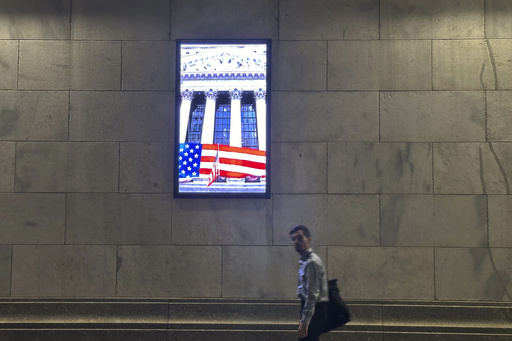
Shares in Asia experienced a decline on Thursday morning after the U.S. stock markets surged, reaching unprecedented heights as market participants speculated on the potential implications of Donald Trump’s return to the White House for both the economy and global relations.
Investors are also poised for the Federal Reserve’s upcoming announcement regarding interest rates, which is anticipated later in the day.
In Japan, the Nikkei 225 index lost its early momentum, dipping by 0.6% to settle at 39,246.86. Meanwhile, South Korea’s Kospi index slid by 0.4%, closing at 2,554.57.
The Australian market reflected a slight decrease as well, with the S&P/ASX 200 retreating by 0.1% to reach 8,191.00.
Chinese markets were not immune to the downturn, as Hong Kong’s Hang Seng index fell by 0.7%, bringing it down to 20,386.36. Similarly, the Shanghai Composite index dropped by 0.7%, closing at 3,359.99.
Donald Trump has indicated plans to impose a sweeping 60% tariff on all imports from China, with intentions to escalate these tariffs further if China takes aggressive action against Taiwan.
Such potential tariffs could place additional strain on China’s already faltering economy as it strives to boost its growth rate.
Import tariffs on goods from China, Mexico, and other countries could introduce a higher probability of trade conflicts, thereby creating further unrest in the global economy.
Despite these concerns, the U.S. stock markets saw significant gains the previous day, with stocks of major companies like Tesla, alongside financial institutions and cryptocurrencies, experiencing notable increases, driven by speculation about the economic landscape under Trump’s potential administration. The renewable energy sector and those who are wary of rising inflation may face challenges as a result.
The S&P 500 index witnessed a notable leap of 2.5%, closing at 5,929.04, marking its most successful day in nearly two years. The Dow Jones Industrial Average surged 3.6% to reach 43,729.93, while the Nasdaq composite index climbed 3% to 18,983.47, allowing all three indices to break records previously established in recent weeks.
The effects of Trump’s second term may largely hinge on whether the Republicans can secure control of Congress, a situation that remains uncertain at this point.
Investors anticipate that Trump’s economic policies could stimulate significant growth, a factor that tends to lower prices while increasing bond yields. While tax cuts under Trump could further expand the U.S. government deficit, which in turn may hike borrowing costs and drive yields even higher, the yield on the 10-year Treasury increased to 4.43%, a sharp rise from 4.29% noted late Tuesday. This marks a considerable change for the bond market, especially when compared to the yield below 4% seen in August.
Moreover, market participants project that the incoming administration’s policies, particularly elevated tariffs, could exacerbate inflationary pressures and raise household expenses in the U.S. A significant reduction in immigration rates may lead to labor shortages within companies, thereby compelling them to increase wages rapidly and further contribute to inflation.
Wall Street’s recent upward trajectory has primarily relied on expectations regarding forthcoming interest rate cuts by the Federal Reserve, especially as inflation has gradually trended back towards the 2% target. While lower interest rates can stimulate economic growth, they could simultaneously provide additional fuel for inflation.
The Fed is scheduled to reveal its latest stance on interest rates on Thursday, where market expectations lean towards a rate cut, as indicated by data from CME Group. However, traders are beginning to scale back their predictions concerning the frequency of rate cuts that the Fed might implement through the middle of the following year.
In early trading on Thursday, the U.S. dollar remained stable against the Japanese yen, holding at 154.63. The euro, however, dipped slightly to $1.0728 from its previous rate of $1.0730.
U.S. benchmark crude oil saw a modest gain, rising by 2 cents to $71.71 per barrel, while Brent crude, the international standard, increased by 24 cents to trade at $75.16.
The price of Bitcoin decreased to $76,165 after reaching a record high above $76,480 on Wednesday, as reported by CoinDesk. Trump has expressed his ambition to establish the country as “the crypto capital of the planet” and to form a “strategic reserve” of Bitcoin.
